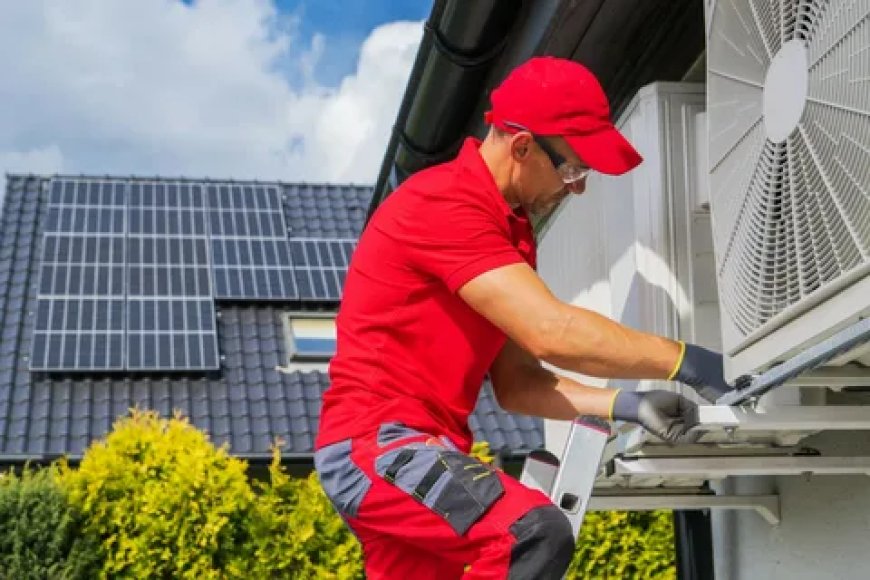How to Become an HVAC Technician?
Discover how to become an HVAC technician with this complete guide, learn the skills, training, and mindset needed to succeed in the HVAC field, and explore industry insights to kickstart your career.

To become an HVAC technician in the current emergent industry, you must have more than tools and time. You need knowledge, dedication, and a clear path. HVAC is no longer just a trade. A professional skill set is always in demand. From homes to high-rises, climate control is essential. Moreover, skilled HVAC techs are the ones who make it all work.
A lifetime dedication is needed to develop into a professional in this field. The right mindset and available resources allow anyone to move beyond being a learner toward obtaining certification status as an expert. Let us explore how to get there, gradually.
Know What the Job Really Takes
Preparing for entry-level knowledge demands familiarity with typical HVAC expert work activities. HVAC refers to Heating, Ventilation, and Air Conditioning units. An HVAC professional operates to install and maintain heating, ventilation systems, and handle their repairs. HVAC work comprises more than its appearance on the surface. Your daily routine includes working with machinery, resolving issues, and accessing elevated areas. Skilled professionals extend beyond their competence with hardware tools. They also communicate clearly and think fast.
It is also a hands-on job. You will not be stuck behind a desk. You will be in basements, attics, or rooftops. Sometimes, you will work in the cold. Other times, the heat will be intense. However, if you enjoy physical work and solving problems, this field can be rewarding.
Choose the Right Training Path
Formal training is a must to become an HVAC technician. While some people start as helpers, most professionals attend a trade school or technical college. Programs usually last six months to two years. They offer both classroom instruction and hands-on labs. Subjects often include refrigeration, electrical systems, safety codes, and blueprint reading. Many schools also help you find internships or apprenticeships. Getting certified matters.
Get Experience in the Field
Classroom knowledge is great. However, real learning happens on the job. Apprenticeships or entry-level jobs allow you to work alongside experienced techs. You will see what challenges come with real systems. It is also where you will develop speed and skill. You will learn how long tasks should take, how to stay safe, and how to avoid common mistakes. During this phase, build your network. Every supervisor, client, or coworker can help open doors in your career. Ask questions. Be reliable. Moreover, take pride in your work, even if it is something as small as replacing a filter.
Know the Certifications and Licenses
To become an HVAC technician and stay competitive, you will need the right credentials. Certifications prove your expertise. Some states also require licenses. Make sure to research your state’s laws before accepting jobs. Start with EPA 608 certification. Without it, you cannot legally work with refrigerants. Then, move on to more advanced credentials.
The NATE certification is one of the most famous in the industry. It proves that you have learned HVAC basics and are ready for intricate jobs. Many employers will expect or prefer technicians to have these qualifications. It shows professionalism and a commitment to the craft.
Keep Learning to Stay Relevant
The HVAC field is always changing. New technologies come out every year. Smart thermostats, energy-efficient systems, and new environmental rules are now part of the job. To stay current, you must keep learning. Read manuals. Attend workshops. Watch tutorials online. Many experienced techs make it a habit to learn something new every month. As you grow, you might want to specialize. Some techs focus on commercial systems. Others stick with residential work. You could even explore solar energy or geothermal systems.
Be Smart About Tools and Equipment
Every technician needs specific tools to work with. However, you do not need everything at once. Start with the basics, i.e., gauges, multimeters, and screwdrivers. As you grow in your role, invest in more advanced gear. Do not forget safety equipment. Your defensive kit, such as gloves, goggles, and strong work boots, is a valuable tool. Your tools must stay in an operational condition. Clean and organize them after each job. Not only will it save you time, but it also shows professionalism. Clients and employers notice those small details.
Be Prepared for the Business Side
To succeed as an HVAC technician, you need to acquire knowledge about the business sector. All professionals who work for others and those running their ventures must grasp customer service basics. Always show up on time. Be honest in your estimates. Communicate clearly. Soft skills prove to be more important in life than most individuals realize.
Your goal of starting a company will require skills in scheduling, marketing, and invoicing. The partnership with a reliable Construction Estimating Company is beneficial during the process of setting new project prices.
Invest in a Strong Support System
A solid support system can help your journey. Surround yourself with mentors, fellow students, or skilled professionals. Join HVAC forums and local groups. Ask for feedback and accept advice. This is also a great time to connect with companies like SMA Estimating LLC. They are a reliable HVAC estimating services provider and support to those entering skilled trades. Whether you are just starting or scaling your services, having a partner like this can save you time and help you stay on budget.
Focus on Growth, Not Just Income
Money matters, yes, of course it matters a lot. However, do not chase it too early. Focus on learning first, and the income will follow. The more experience and certifications you gain, the more you can earn. HVAC technicians with years of experience and advanced skills often make great salaries. Some even move into sales, management, or teaching. Others open their businesses and thrive. Whatever path you choose, keep moving forward. Keep improving your knowledge and skills.
Prepare for a Lifelong Career
To become an HVAC technician, you need more than desire. You need action. Every step counts. From trade school to your first service call, each experience builds your career. Stay curious, do not make a hurry, and stay patient. Moreover, stay committed to doing excellent work every day. The HVAC world is full of opportunity. Whether you are fixing a home system or designing a commercial unit, the work is meaningful. In addition, if you are consistent and passionate, success is within reach.
Final Thoughts
If you want to become an HVAC technician, you should understand that their path will extend, but they can achieve their goal. Using the correct training, right experience, and mental approach allows you to establish a stable career and rewarding outcomes. The journey, regardless of the current stage, will lead you toward success. Learn from each step and surround yourself with the right people and tools to help you grow. After all, every successful tech started just like you with a goal, a few tools, and a willingness to learn.





































































![https //g.co/recover for help [1-866-719-1006]](https://newsquo.com/uploads/images/202506/image_430x256_684949454da3e.jpg)




























![[PATREON EXCLUSIVE] The Power of No: How to Say It, Mean It, and Lead with It](https://tpgblog.com/wp-content/uploads/2025/06/just-say-no.jpg?#)






















































